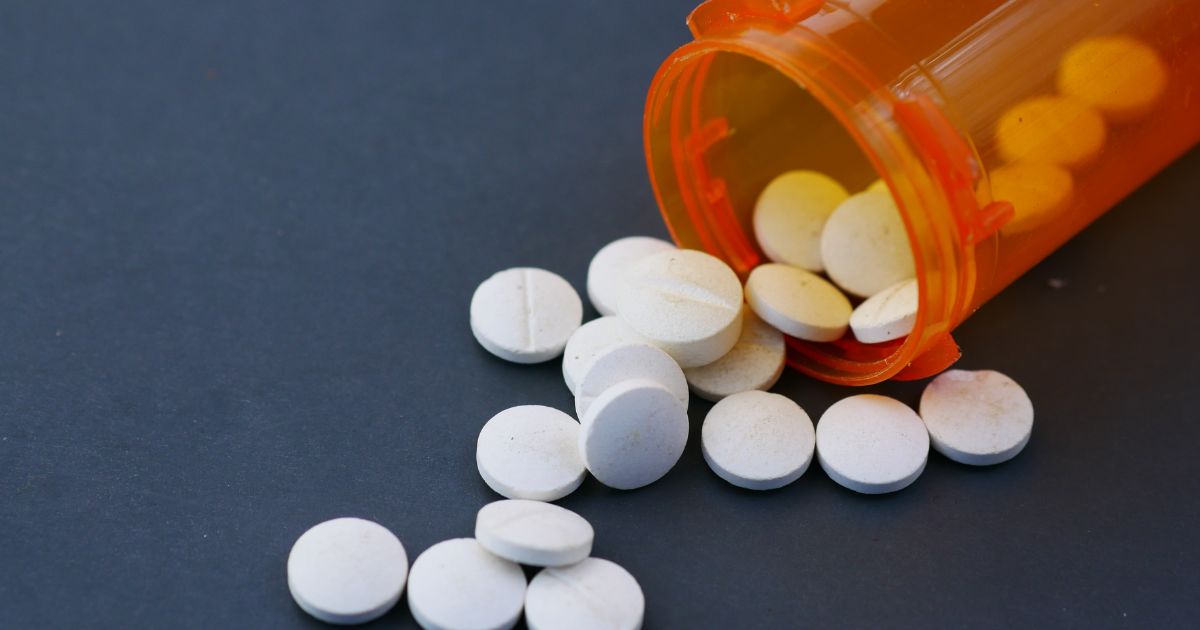The journey to recovery from addiction is a personal and unique one. Each individual requires a tailored treatment plan that best suits their needs, and in some cases, outpatient treatment may be the most effective choice. But what exactly does this involve? Let’s explore what outpatient treatment is, how it differs from inpatient treatment, and who can benefit the most from this type of care.
What Is Outpatient Care?
Outpatient care refers to medical treatment that doesn’t require you to stay overnight in a hospital. It’s used to treat many illnesses and problems, including addiction. While receiving outpatient treatment, individuals can live at home and carry on with their daily lives while they get help.
Outpatient care is about treatment that fits into your life. Unlike inpatient care — where you stay at the facility for an extended period of time — outpatient care means you visit for scheduled appointments. This way, you can receive treatment that is planned around your job, family, or other duties.
Types of Outpatient Facilities
There are many types of outpatient facilities designed to cater to individuals’ unique needs. For instance, some centers are for urgent care. Others are for medical tests or specific health conditions. At outpatient centers, guests can access a variety of medical services without the need to stay overnight.
In the context of addiction recovery, these facilities are often categorized based on the level of care they provide and the programs they offer.
Outpatient addiction treatment facilities provide a variety of programs, including:
- Standard Outpatient Programs (OP): These programs usually consist of one or two therapy sessions each week. Each session lasts about an hour. OP is typically best for people with mild addiction or those transitioning from a more intensive treatment program.
- Intensive Outpatient Programs (IOP): IOPs require more time, with sessions usually three times a week, for several hours. They often include group therapy, individual counseling, and classes about addiction and recovery.
- Partial Hospitalization Programs (PHP): Also known as day treatment, PHP is the most comprehensive form of outpatient care. They offer full-day treatment sessions, five days a week. PHPs are best for people who need extended care but have a safe place to live outside of the facility.
Learn about treatment for mental health issues that may be present during addiction and gain the answer to the question “What Is Dual Diagnosis Treatment?”
Outpatient Alcohol Treatment
Outpatient alcohol treatment provides thorough care to people fighting alcohol addiction while allowing them to keep their daily routines. These programs include one-on-one counseling, group therapy, family therapy, and psychoeducation classes.
A key part of outpatient alcohol treatment is preventing relapse. Relapse prevention planning teaches guests how to identify and avoid triggers that might make them drink again, ultimately supporting their long-term sobriety. These programs also address underlying issues that may contribute to addiction, such as mental health disorders.
Outpatient Drug Treatment
Outpatient drug treatment is a program that helps individuals who are dealing with drug addiction. It offers specialized techniques to guide people toward recovery. Two of these techniques are cognitive behavioral therapy (CBT) and dialectical behavior therapy (DBT).
CBT and DBT are strategies that have been proven to help individuals overcome addiction. These tools help people understand and change their behavior. Therapy equips individuals with fresh approaches to navigating life’s hurdles without resorting to drugs.
For a deeper dive into how these therapy techniques can be beneficial for healing, check out the ways we incorporate DBT skills for addiction recovery.
Outpatient vs Inpatient Treatment
The choice between outpatient and inpatient treatment is influenced by several factors, including the severity of the addiction, the individual’s personal responsibilities, and their support system at home. To make an informed decision, it’s essential to understand what each of these treatment options entails. Let’s take a look at the specifics of inpatient and outpatient treatments to help you discern which approach may be most suitable for your unique circumstances.
Inpatient treatment is where individuals stay at the facility full-time and receive intensive therapy and care. This is particularly beneficial for people with severe addiction, those who have relapsed multiple times, or those with mental health issues needing regular medical attention.
On the other hand, outpatient treatment programs provide flexibility. They allow people to continue their work or school while also receiving treatment. This is usually the best option for individuals with less severe substance use issues or those with a supportive, stable home environment.
How Do Outpatient Treatment Programs Work?
Outpatient treatment programs are designed to offer recovery support while allowing individuals to continue with their daily lives. This means you can get treatment for addiction while still going to work, attending school, or caring for your family. The goal is to give you the tools and support you need to overcome addiction, without disrupting your regular schedule.
Each person in the program gets a personalized plan called an Individual Service Plan (ISP). This individualized treatment plan is designed to fit your unique needs and goals. You can choose to attend one-on-one counseling sessions, join group therapy, or both. You can also adjust your plan as you progress. So, if you need more support during a tough time or less support as you gain confidence, your plan can change with you. The goal is always to help you succeed on your journey to recovery.
What Are Outpatient Services?
Outpatient services are the different treatment options available in an outpatient facility. These rehab services are available for those who have a solid foundation of sobriety and wish to continue their time in treatment while still living in their own home. Alternatively, guests who wish to continue their time surrounded by others in the recovery community can stay in sober living.
With outpatient services, you can meet with a clinician or therapist to get the additional support and resources needed to reach your goals of sustained sobriety. Therapy services are offered individually or in groups, to provide complete care that helps with both the physical and mental aspects of addiction. Alongside individual and group therapy, outpatient typically offers family therapy services, educational programs, and medication management.
What Is Outpatient Therapy Like?
Outpatient therapy is a unique experience for everyone. The therapy is tailored to meet your personal needs. You might meet with a counselor for one-on-one talks or join group discussions. These meetings will help you learn how to manage challenges like triggers and the risk of relapse.
In these therapy sessions, you’ll also learn more about addiction. You’ll find out how to make healthier choices and how to build a supportive community that can help you on your recovery journey. Each step in outpatient therapy is designed to help you gain more confidence and control in your life.
Who Can Benefit From Outpatient Treatment?
Outpatient treatment often works well for those who finished an inpatient program and now need a more relaxed care level. Outpatient is also a good match for people with less serious addictions and a supportive home environment. Because it’s flexible, outpatient treatment can help individuals who need to navigate treatment with work, school, or taking care of their family.
Our Outpatient Addiction Treatment Programs
At Royal Life Centers, we understand that keeping balance during recovery is important. Our outpatient program (OP) is made to provide that balance, offering a mix of structured support and personal freedom. OP allows guests to keep up with their work and personal responsibilities while continuing their path toward recovery.
All of our addiction treatment programs are built around the understanding that recovery is a personal journey, and our treatment sessions are tailored to the unique needs of each person. We aim to provide our guests with the tools they need to handle daily challenges without turning to substance use.
Our Outpatient Services
We offer flexible and effective outpatient programs that you can work with to fit your needs. At Royal Life Centers, we ensure you get the best possible care through outpatient services.
Customizable Treatment Plans
We understand everyone’s life is different. That’s why we let you decide how much time you can spend in one-on-one counseling or group sessions. With help from our case managers, your individual service plan (ISP) is designed by you, for you, and can be changed according to your needs.
Flexible Treatment Schedules
Whether you’re busy with work, family, or other commitments, our program is here for you. We provide both daytime and evening sessions to suit your schedule.
Comprehensive and Holistic Care
Our outpatient program isn’t just about avoiding substance use. We offer a range of services to support your well-being. You can access an on-site gym, join life skills classes, relax in zero-gravity massage chairs, and even use our in-house music studio.
Telehealth Services
If you’re a resident of Washington, you can take part in our award-winning outpatient program from the comfort of your home. This includes regular virtual appointments with our doctors with access to medication management services.
Medication-Assisted Treatment (MAT) Services
If you need medication-assisted treatment in outpatient, our staff can provide transportation to clinics where you can recieve medication like Suboxone and Naltrexone to aid your recovery. All of our MAT services are combined with ongoing clinical and medical care for the best results.
Sober Living Residences
If you choose, you can live in our sober living residences. Here, you’ll have access to transportation, Wi-Fi, cable television, and more. Plus, you’ll be part of a supportive community of people who are also navigating the journey toward recovery.
Accountability Measures in Outpatient
Our program encourages responsibility and accountability. With nightly curfews and regular drug tests, we help you develop strong decision-making skills. This helps you build a foundation for a self-sufficient life free from substance abuse.
Alumni Services and Community Support
Our outpatient services immerse you within our passionate and motivated alumni community. During OP, you will also attend recovery support meetings like AA and NA to build relationships with others in your local sober community.
Our outpatient addiction treatment programs offer a blend of structured support and personal freedom. No matter your daily commitments or individual needs, we’re here to help you on your path to recovery.
Start Your Recovery Journey Today
If you or a loved one is struggling with addiction, know that help is available. Outpatient treatment may be the solution you need to start on the path to recovery. At Royal Life Centers, we are committed to providing the highest level of care to help our guests overcome their addictions and build a solid foundation for a life in recovery.
If you have any questions about any of our treatment programs or want to learn more about how we can support you in your recovery journey, please contact us today. Our dedicated team is ready to assist you 24/7 at (877)-RECOVERY.











